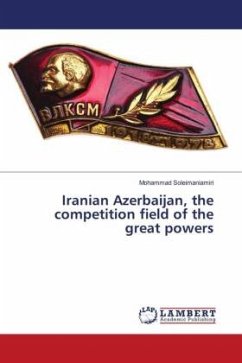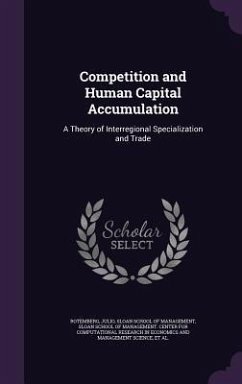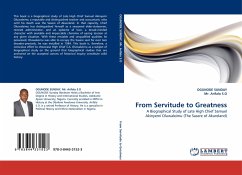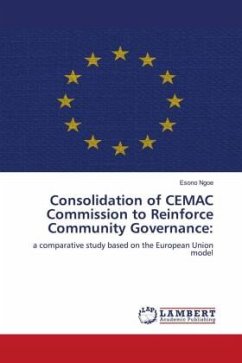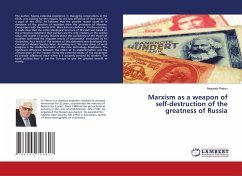
Marxism as a weapon of self-destruction of the greatness of Russia
Versandkostenfrei!
Versandfertig in 6-10 Tagen
18,99 €
inkl. MwSt.

PAYBACK Punkte
9 °P sammeln!
The author, having extensive experience in managing corporations in the USSR, was looking for the reasons for the low efficiency of their work. As a pupil of the CPSU, he believed that the possible reason could be in deviation of the practice of socialism from the provisions of Marxism. Comparison with the works of K. Marx did not confirm it. On the contrary, it made clear that the entire ideological structure of Marxism was based on the erroneous statement that workers are the only creators of the surplus value and wealth of society. Doubts about the correctness of the theory of socialism con...
The author, having extensive experience in managing corporations in the USSR, was looking for the reasons for the low efficiency of their work. As a pupil of the CPSU, he believed that the possible reason could be in deviation of the practice of socialism from the provisions of Marxism. Comparison with the works of K. Marx did not confirm it. On the contrary, it made clear that the entire ideological structure of Marxism was based on the erroneous statement that workers are the only creators of the surplus value and wealth of society. Doubts about the correctness of the theory of socialism confirmed the negative results of "perestroika" conducted by M. Gorbachev. As a result of the revision of this statement was developed the Concept of Hidden Surplus Value. According to it, the main driver of social progress is the intellectual labor of the new technology developers. The significant difference between the effect of its implementation and the remuneration of the creators forms the potential ability of the equipment to provide additional value when it is properly serviced by workers. The book outlines how to use the Concept to give the greatest benefit to society..



